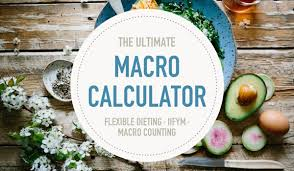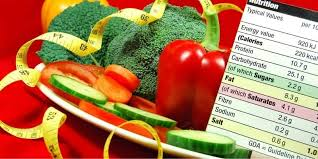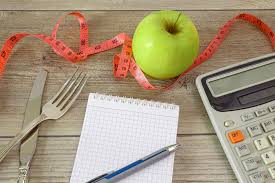Trying to find the best macro split? Your REAL maintenance calories or what you need to eat to lose fat & finally see results?
In this guide:
1. How can you accurately determine their baseline behaviors before starting a new diet or training program?
2. What are some key steps people often overlook when focusing too much on macro calculations? (which is why many stay stuck & spin their wheels)
3. Some BONUS strategies I use to create success in my clients – it’s a TEAM effort. Collaboration is key.
4. What are the signs that your current diet or exercise routine might not be working for you?
5. What is the best way to approach your macros & diet from here?
What is our world so good at doing?
Giving you conflicting information, TOO much information, that makes navigating your goals WAY harder than they should be.
Why do many of us find it harder than ever to see the leaner body composition we desire? To find the best diet our bodies and goals?
Here’s the thing – many people are good at losing weight (at least at first)… but then what? It almost NEVER lasts… or they simply never even get to their goal where they can say “damn I’m so proud of myself & I feel fkn strong, amazing, CONFIDENT and full of life & vitality.”
Especially as the new year rolls around, or its time to “shred for summer”, people become obsessed with “What’s the best macro calculator?” or “How do you accurately calculate your maintenance?”
Solely relying on macro calculators can be problematic, as they’re mostly INACCURATE & only provide rough estimates. They don’t consider individual factors such as diet history, current exercise, lifestyle, nutritional habits, or specific challenges.
akin to asking, “What weight should I squat?”
Based on general averages, a woman weighing X should be able to squat Y.
But if you’re new to squatting or lack the necessary shoulder mobility for a low bar position, can this advice truly be useful? And can you realistically squat 60kg just because the statistics suggest so? What if you had a bad history with back squats and the thought of doing them gives you mass anxiety?
Can someone realistically expect to squat 60kg simply because stats say so?
The disconnect between random recommendations/averages & individual baselines/considerations can not only lead to unrealistic expectations but terrible consequences
- Focusing solely on the outcome makes you skip necessary steps – you can’t climb a ladder from the top.
- If you are athletic & well trained OR have a lot of extra adiposity, they are even more useless for you
- Most calculators undershoot on protein
- If you are using it for a deficit, MOST give you way too low a target
- Refer to #2
- Many people use them wrong for activity factors
- They also don’t talk about the COMPOSITION of those macros which matters a fk tonne (food choices)
What happens once those numbers stop working?
Or when you finish your diet?

How to calculate your calories
The issue most of the time is that people use calculators to figure out their DIET calories without even knowing their baseline or their TRUE maintenance.
People often jump into changing their behaviour before they’re even familiar with what it is they’re changing… Going into a NEW plan, setting up “the BEST DIET FOR YOU” without being FULLY aware of what your current diet is, where your pitfalls lie, and whats been holding you back or sabotaging you in the past…doesn’t make sense.
Ps. No just because youre trying to eat 1400 and not seeing results, does NOT make that your maintenance. For the average active woman who CARES about getting an athletically fit looking physique, that’s more about the 1850-2450 range for most
Most women just want to jump in and get results, you MOVE THE LADDER, ask all the questions… without just getting the ladder up the right wall. I get it, youre SO motivated because you are unhappy with where you are. You don’t think this is a BIG CHANGE in and of itself.
That’s like a random giving you a program with specific weight # to lift and training volume without even knowing HOW you move, what youre capable at and your training history.
1. How can you accurately determine their baseline behaviors before starting a new diet or training program?
Track Your Intake: Record everything you eat and drink for at least a week using a food diary or an app. Be honest and detailed.
– Does it vary day to day?
– Does it vary on weekends?
Monitor Activity Levels: your training, duration – intensity – type etc… your steps and activity OUTSIDE of the gym. Week days & weekends?
Note Sleep Patterns & Stress Levels: Reflect on your stress levels and how you manage them. Hows your sleep quality?
Evaluate Current Habits: Write down your daily routines, including meal times, snack habits, and hydration.
Get a Professional Assessment: Consider working with a nutritionist (hello) for a comprehensive evaluation.
Your baseline activity levels LARGELY dictate your metabolism – im not talking about in the gym
And then theres the genetic variation on what type of metabolism you have, thrifty or spendthrift where thrifty metabolisms adapt faster when moved out of their maintenance range (more resistant to weight loss)
we need to know not just quantitatively what your intake is
- BUT why do I eat what I eat
- how do I feel? Does this satisfy me? Leave me craving more?
- how often do I eat?
Its not just about your carbs fats and protein
Tracking just for macros and/or calories wont get you very far.
Fuelling workouts with carbs, learning how to fuel and how foods make you feel IS IMPORTANT.
How many fruits and vegetables you’re eating? how much water?
- how do you feel after these meals what which ones make you feel more bloated which ones provide sustained energy?
- Rating the palatability of food… does anything make you want more and more, or skew your appetite and cravings? Make it easy to overindulge?
The 1-2 weeks of tracking your intake up front IS serious even without a calorie goal. Tracking your baseline behaviours is SO important

2. What key steps do people overlook when focusing too much on macro calculations? (which is why many stay stuck & spin their wheels)
If you havent monitored your intake at all before, trying to master that tracking + eat for fat loss or a goal is not going to work, its stressful, there will be alot of errors, you will have things tracked wrong or go untracked… and it makes you feel youre putting in way too much effort for little return, especially if the tracker has you on much lower of a # than what you really need
Stress + results arent a match. Its friction. Deficits are also a stress on the body. As is poor nutrition quality.
Tracking and monitoring your behaviour IS a goal
- improving UPON THAT is progress
- making subtle changes IS progress
- improving habits –> results that LAST and that can be manipulated in different situations and circumstances.
TRACKING with a focus of improvements can make you aware of snacking, binging..
Even IF you had a tracking background, we have a different goal now. Improving upon what you are tracking… you may not track the dinner out because “its not accurate anyway” or you don’t log the small things cos “its only one/small” but they DO add up. The cookie you never log out of guilt?
FRICTION is a feature not a bug when learning this process and making improvements upon HOW you are currently eating to build a really strong base so that when you DO have a more specific goal, it is a more smoother process
The mindset in itself can feel like friction because it doesn’t feel like “youre busting ass and grinding hard”. Great. That’s the point. That’s how you stop falling off all the time or only making TEMPORARY change.
DO NOT RUSH THIS PROCESS
You get the desired outcome from the PROCESS. So make the PROCESS the goal and youll keep the outcomes and only keep improving it.
Can you see how NOW we can work together on why you overeat at night…
Why the weekends turn out to be a flop, why you have energy crashes early arvo, sugar cravings all day…
We can see where you get the extra snacks or ‘treats’ that arent serving you and develop a plan so you can still include the food you enjoy in a way that still gets you the desired outcomes
- What drives overconsumption?
- What leads to under consumption?
- How can we find ways to move more?
- How can we set up your environment to help you move more unintentionally?
- How can we make it easier to get a higher step count?
Sometimes having to track a problem behaviour can help manage the behaviour and brings awareness and consciousness to it.

Just tracking for macros or calories or focusing on an end goal of less can have you neglecting foods that matter like fruit and veg which are satiating and are key players in a healthy metabolism, hormones and how you feel
Low activity levels skew appetite = more calories
Underhydrated? Low nutrient density? Eat more
Eat like a bird in the day? Not making balanced/complete meals? Underfuelling the first half of your day? Eat more, snack more, your calorie deficit wont be a deficit anymore… your training performance wont be the best it can be, you wont get the end outcome you want.
So focusing on these “base habits” really helps drive LONG term outcomes & empowers the client with confidence and competence
Ps .The goal is to maximize adherence. You cant do that by overhauling a whole diet or trying to master too many things at once, that’s how you spin your wheels, especially if you arent enjoying it.
Otherwise youre putting in ALL OF THIS WORK to do all of this stuff… sorta…
So you sorta mingle your way to a bad outcome
Now thats really discouraging and it damages your confidence & self-efficacy
Vs them being stepping stones to your progress & outcomes – HIGHER RETURN FOR YOUR INVESTMENT OF EFFORT
YOU WANT a foundation vs aiming up super high and have it crumble underneath you

3. Some BONUS strategies I use to create success in my clients – it’s a TEAM effort. Collaboration is key.
Clients experience the best outcomes if they do the following:
– Respond to reflective statements and questions, even when it feels uncomfortable. This is the best opportunity for a break-through!
– Be an active participant, not a curious bystander.
– Be open, honest, and willing to explore what isn’t clear or fully known about themselves, others, and the situation.
– Act on what comes out of each checkin/conversation & carve out time to think deeper about each conversation after each one AND before the next one.
The biggest mistake in the industry in that people engage in all this stuff because they want change ASAP but they dont get the fundamentals dialled in… which is why we have this epidemic of struggle & fitfluencers promoting garbage to play on your pain.
I use positive motivation vs negative:
How can we ____ (increase steps) VS dont do this dont do that
Working together to see how we can get to those outcomes, reverse engineering the environment, figuring out which variables -if monitored- could reduce friction.
Plan B’s or C’s where possible
RED, ORANGE, GREEN light strategies that can be manipulated different for different things.
Now you are more likely to succeed long term bc im empowering you to fit it into your own life and find meaning in your own goals this way!!
Once these components are addressed, the other stuff is MUCH easier to implement. Then we can dial in your training to take THAT to the next level. Dial in your nutrition more to FUEL performance.
Its important to work together on your obstacles and raise your floor bc as coaches it’s never going to be as specific as the knowledge of the person who’s living that life which they’re trying to change

4. What are the signs that your current diet or exercise routine might not be working for you?
Lack of Energy: Feeling constantly fatigued or lacking energy.
Mood Swings: Experiencing frequent irritability, depression, or anxiety.
Poor Recovery: Prolonged muscle soreness and slow recovery from workouts.
Plateaued Progress: Not seeing any improvements in strength, endurance, or body composition.
Sleep Issues: Difficulty falling or staying asleep, or not feeling rested.
Constant Hunger: Feeling hungry all the time, despite eating regularly.
Digestive Problems: Experiencing bloating, constipation, or other digestive issues.
Injury and Illness: Frequent injuries or getting sick often.
Loss of Motivation: Feeling unmotivated or dreading your workouts and meal plans.
Physical Symptoms: Noticing hair loss, skin issues, or other physical symptoms, menstrual irregularities
Emotional Eating: Increased cravings for comfort foods high in sugar and fat.
Poor Digestion: Stress can affect digestion, leading to issues like bloating or discomfort.
5. What is the best way to approach your macros & diet from here?
➡️Food QUALITY matters
➡️Aim for 2.2-3g/kg protein. go high protein
👉Satiety, helps blood sugar & cravings, helps maintain muscle with proper strength training
👉takes the most calories to break down & digest
👉30-50g protein 3-5x/day
➡️Min. 0.6g/kg BW healthy fats
👉<10-12g/day saturated fat
➡️600-800g veggies & fruit; MICROS MATTER
opting for more plants & whole food helps satiety & cravings
➡️PRIORITIZE training nutrition – aim for 50% of carbs pre & post
➡️Keep food choices BASIC
➡️DONT overcomplicate meals
➡️WALK!!
👉 You want to be able to lose on as much food as you can
WITHOUT overdoing it (you need to be able to recover)
👉More fuel = more opportunity to get micros & macros in
👉FUELs performance & optimize your health, metabolic processes, cognition thus body comp
🎯Most of our lack of adherence is stress or overwhelm related
FINDING AN EASIER WAY to do things saves time, effort & decision fatigue
✅PLAN a day/week in advance
✅ LESS recipes MORE repetition & routine
Yes it can be tedious
I help my girls with this weekly!
Shifting their identity, focus & injecting them with a whole new belief they CAN
I makes it more enjoyable & allow them to create many wins from get go!
REMEMBER;
Your diet doesn’t end at the end of a diet.
It ends once you get yourself successfully maintaining and, on a path, forward…
Too many people are either dieting VS not dieting/freeballing
Theres no REAL intent beyond that…
Which is why so many people end up in a worse position, lose motivation, give up, etcetc… and stay in a chronic “dieting mindset”
you CAN have it all… just need some structure & [plan
YOUR structure to build muscle & minimize fat gain is going to look much different than someone else’s.
Why?
Because our bodies, our lifestyles, and our calorie needs are all VERY different.
Our psychologies are different.
Its not the training or nutrition that’s actually the hardest, but what goes on between our ears. Stop being your own bottleneck
If this is something you need, apply for a free consult
